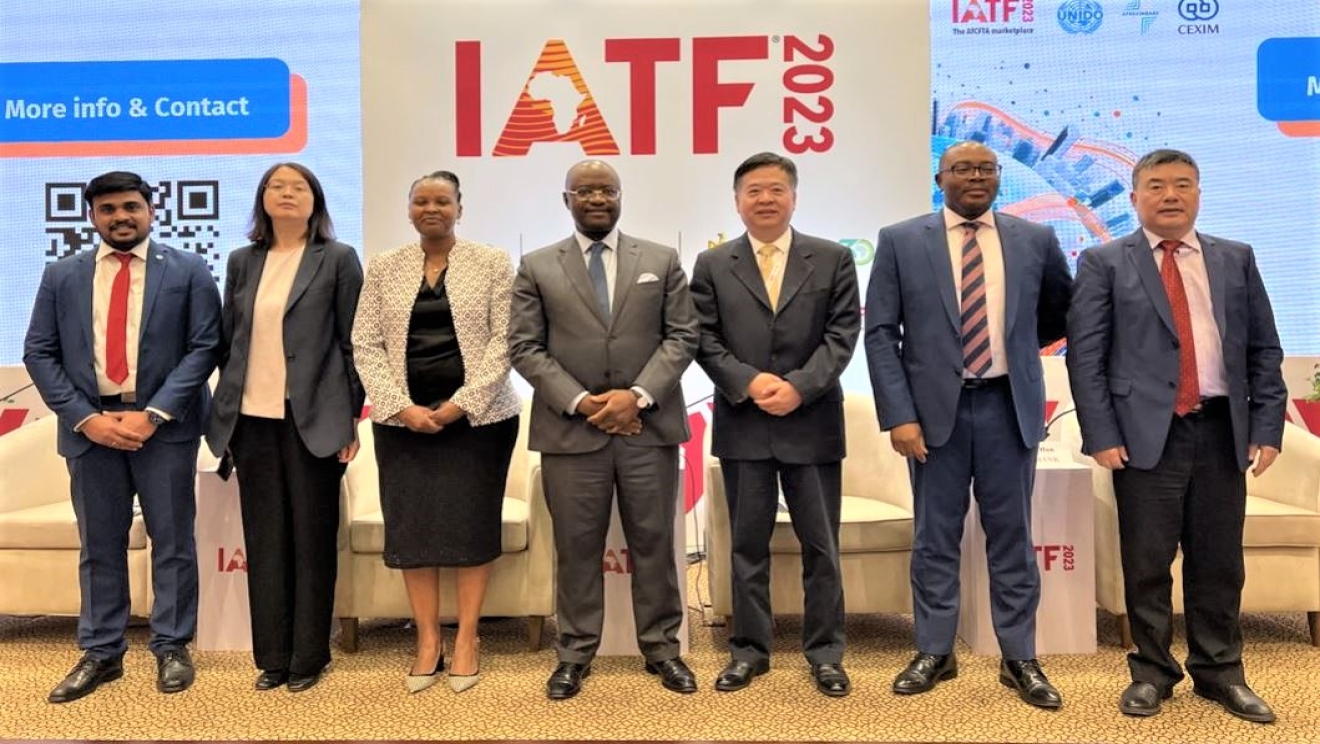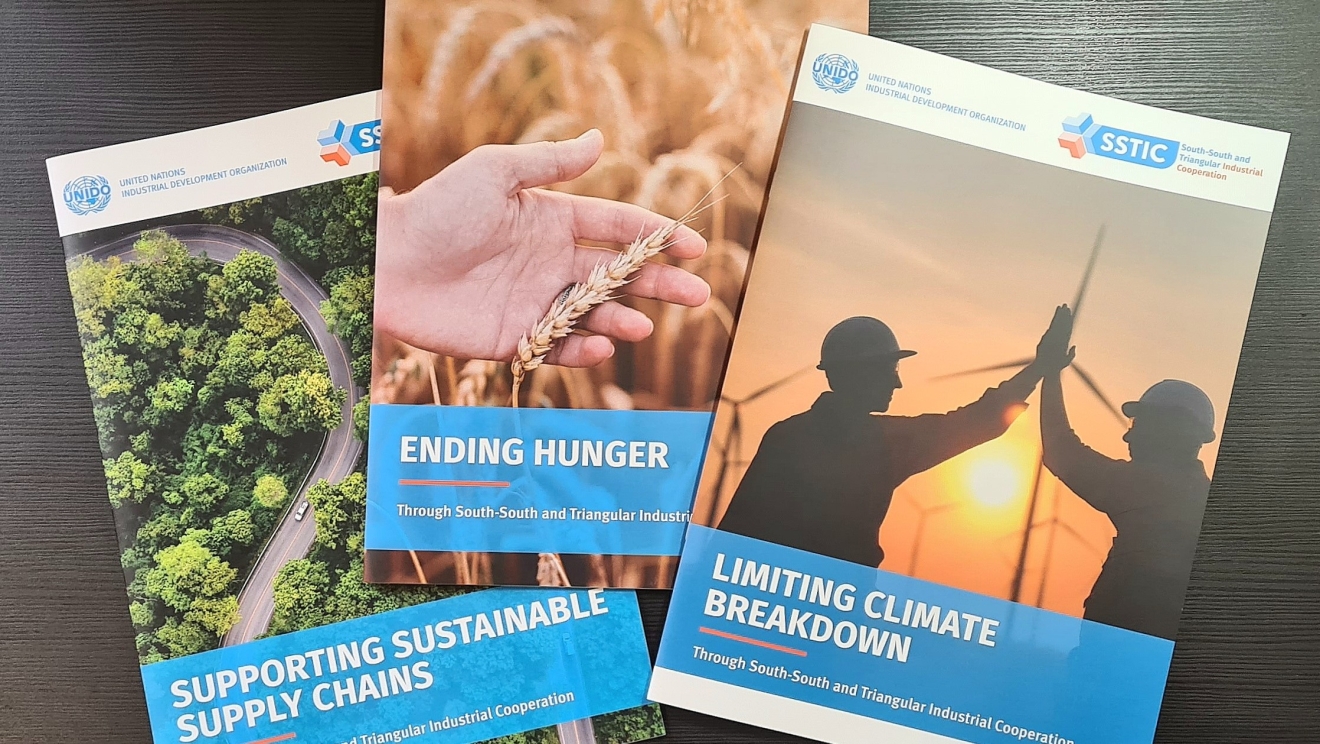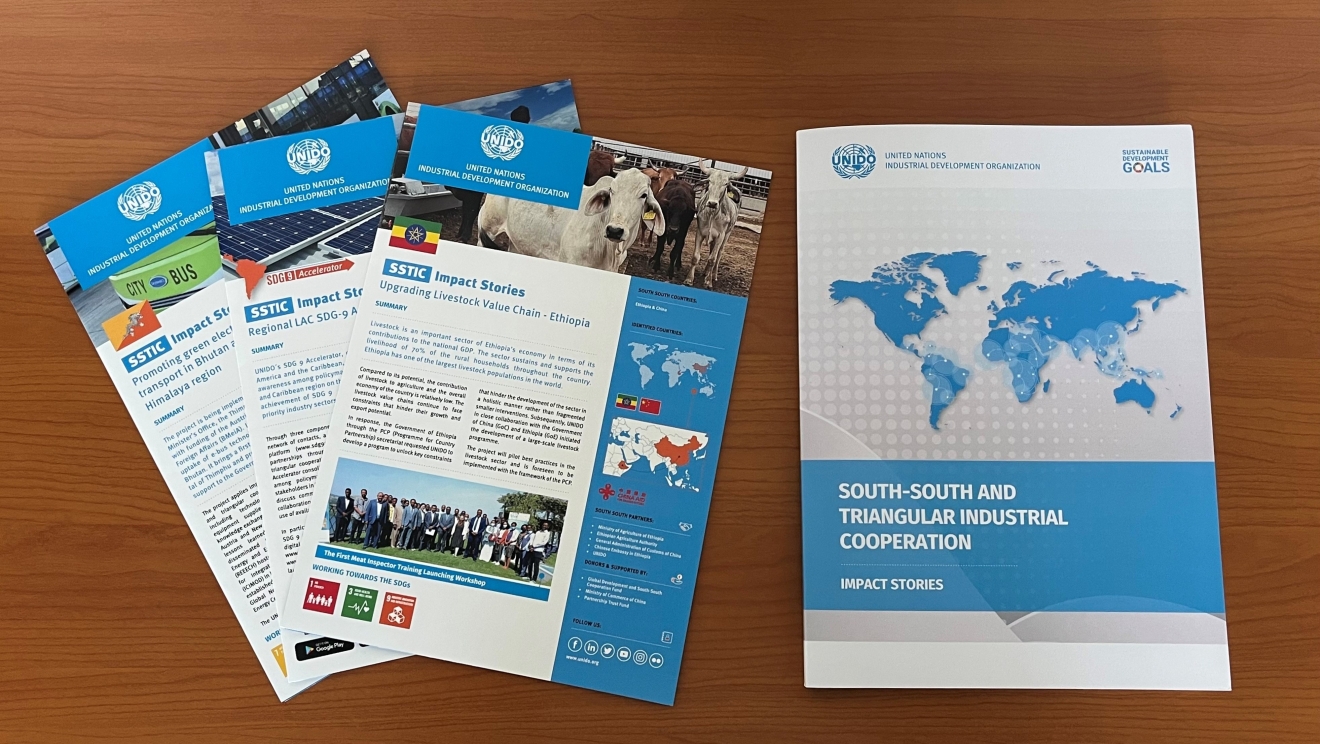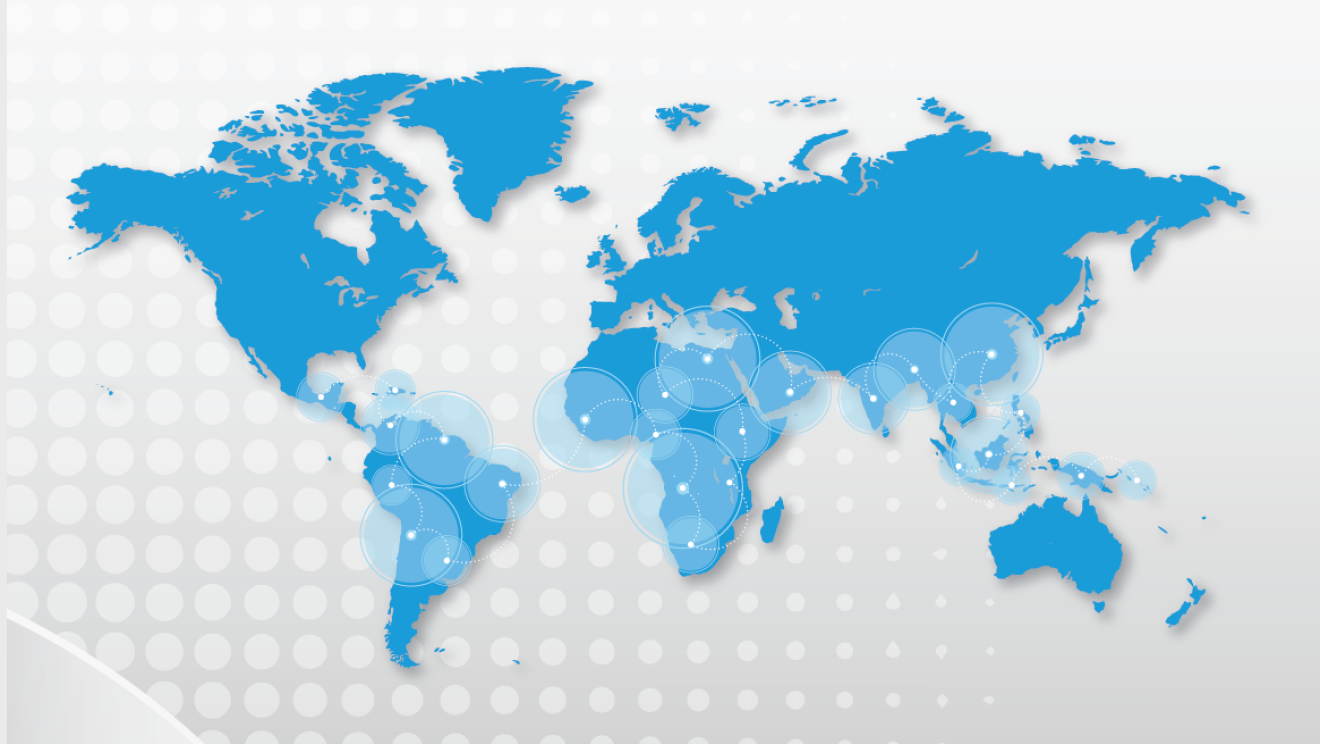
South-South and Triangular Industrial Cooperation
Highlights
Countries in the Global South are increasingly leveraging the power of South-South and Triangular Industrial Cooperation (SSTIC) to drive sustainable industrial development and achieve the Sustainable Development Goals, particularly SDG 9 on industry, innovation, and infrastructure. UNIDO's SSTIC initiatives cover a wide range of thematic areas, including agro-industry, circular economy, green industry, and Fourth Industrial Revolution technologies. By mainstreaming SSTIC across its operations and aligning its efforts with the UN system-wide strategy on South-South and Triangular Cooperation, UNIDO is contributing to a more inclusive, resilient, and sustainable future for all.

South-South cooperation leads to greater innovation as it provides opportunities for developing countries to learn from each other and share best practices.
What is South-South and Triangular Industrial Cooperation?

South-South Cooperation is “a process whereby two or more developing countries pursue their individual and/or shared national capacity development objectives through exchanges of knowledge, skills, resources and technical know-how, and through regional and interregional collective actions.”

Triangular Cooperation is “Southern-driven partnerships between two or more developing countries supported by a developed country(ies) or multilateral organization(s) to implement development cooperation programmes and projects.”
“South-South and Triangular Industrial Cooperation (SSTIC) is a collaborative approach that enables countries in the Global South to share knowledge, technology, and resources, fostering mutual growth for inclusive and sustainable industrial development.”
Explanatory video on UNIDO’s SSTIC approach, showcasing its significance in promoting sustainable industrial development.

e-Learning: Introduction to South-South and Triangular Industrial Cooperation (SSTIC)
This UNIDO self-paced e-learning course on South-South and Triangular Industrial Cooperation (SSTIC) offers a comprehensive overview of these development cooperation modalities, emphasizing their role in advancing sustainable development. The course is designed to be completed in 60-90 minutes and includes real-world case studies to illustrate key concepts.
Contact us
Mr. Shenhong Yao
Director
Division of Strategic Planning and South-South Cooperation (SPP/SSC)
Mr. Pradeep Paulose
Programme Officer
Division of Strategic Planning and South-South Cooperation (SPP/SSC)









